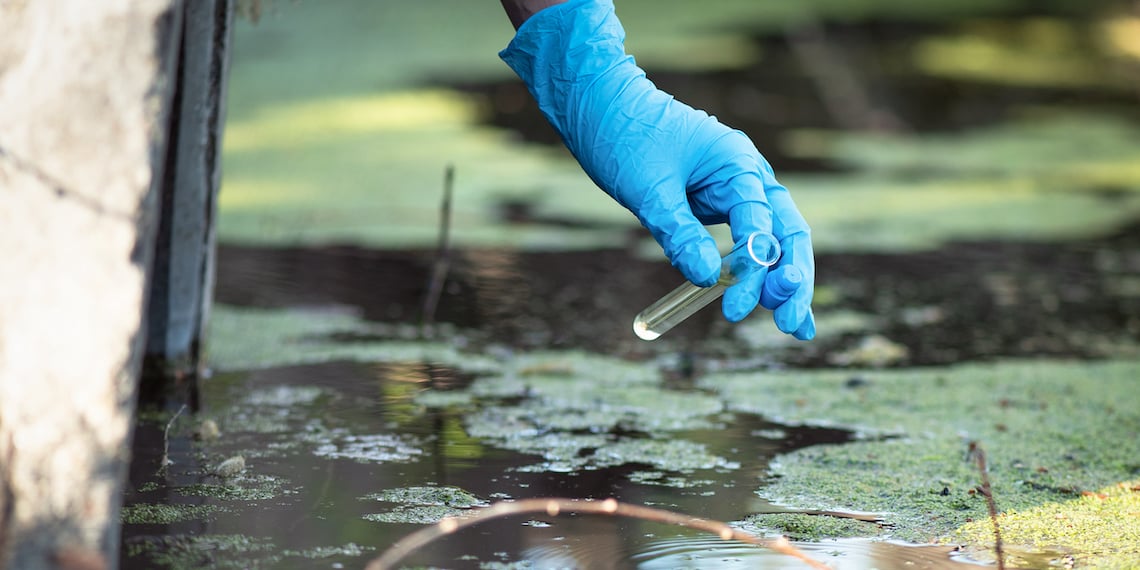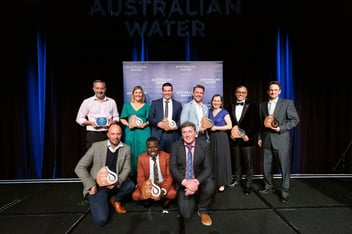Meet the 2024 Student Water Prize finalists

Five innovative student researchers chosen as finalists in the 2024 Student Water Prize showcase the breadth of talent among those pushing the boundaries of water research.
The Student Water Prize, to be announced at the Gala Dinner on Day Two of Ozwater’24, recognises and rewards excellence in water-related studies and research at a tertiary level.
Sponsored by Guidera O’Connor, the prize is open to students and recent graduates of any Australian university or tertiary institute focused on water-related topics, and is one of many presented as part of the Australian Water Awards at Ozwater’24.
Following a selection process at a state and territory level, seven finalists from across Australia were chosen to present their research projects on Day One of Ozwater'24.
Here are the five talented finalists and a brief description of their respective projects.
Ting Zhou, the University of Technology, Sydney
An innovative Green Technology for Removing Emerging Contaminants and Maximising Bioenergy Recovery from Wastewater Treatment Systems
Ting is a PhD student in the School of Civil and Environmental Engineering at University of Technology Sydney. She is working on new technology for emerging contaminants remediation, sustainable wastewater treatment, sludge treatment, and energy recovery from waste. Ting published 24 peer-reviewed journal papers, including Nature Communications and Water Research.
Zhetai Hu, Australian Centre for Water and Environmental Biotechnology, The University of Queensland
Novel Usages of Iron Salts for Achieving Sustainable Water Management
Zhetai’s study focused on novel applications of iron salts for an integrated technology solution that will enable water utilities to establish a self-reliant and more secure supply chain to meet its demand for iron salts, at lower economic and environmental costs, and simultaneously achieve recovery of high-quality bioenergy.
Hiua Daraei, University of South Australia
New Water Treatment and Coagulant Dose Control Systems for DWTPs: fDOM Fluorescence Signal Corrections for Environmental-Monitoring and Coagulant Dose Control
Hiua is a UniSA-STEM PhD candidate (thesis under examination). Hiua’s PhD project was an ARC LP project, collaborating with Seqwater, Melbourne Water, SA Water and Xylem. Hiua has begun a research fellow position at Griffith University, where he is tasked with implementing the dose control models developed in Seqwater’s DWTPs.
Ibrahim Hakeem, RMIT University
Heavy Metals Recovery and Biochar Production from Biosolids via Integrated Mild Acid Pre-treatment and Pyrolysis Processes
Ibrahim has recently completed his PhD at RMIT University. His work focused on developing integrated chemical-thermal process for the conversion of biosolids to high-quality biochar. Ibrahim is a student of the ARC Biosolids Industrial Transformation Training Centre and Water Research Australia research leadership program.
Maira Alvi, The University of Western Australia
Deep Learning for Prognostics of Wastewater Treatment Facilities
This project developed a cost-effective prognostic framework using machine learning that approximates/forecasts key-parameters of wastewater processes ahead of time to enable enhanced decision support, averting costly failures. An automated state extraction enhances system insights for monitoring remote-site events. The framework improves treatment efficiency, advancing knowledge in sustainability and resource optimisation.



